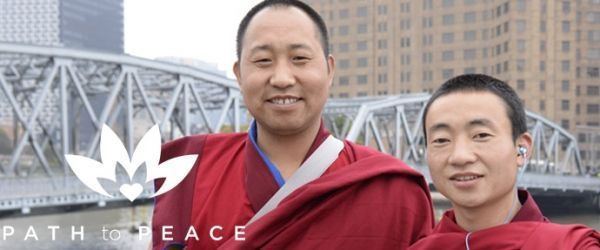
Intro to Buddhism, part 3: Meaningful conversations
Now that we’ve covered basic Buddhist beliefs
and explored some of the fascinating symbols and traditions
associated with Buddhism, Richard Nakamura, SEND missionary to diaspora Japanese in Seattle and former Buddhist, has some advice for us. In part three of our Intro to Buddhism series, he shares some of his time-tested ideas for maintaining meaningful spiritual conversations with Buddhists.
Q. What influences of Buddhism might we see in our North American culture?
The Buddhist emphasis on peace and care for all living things appeals to many living in the West. All creatures have equal value, and the goal of living in harmony with nature strikes a desirable cord within many people. Some see pollution, destruction of forests, and abuses to the environment, and believe that Buddhism can address these issues and concerns.
Some popular movies incorporate Buddhist teachings (“Last Samurai,” and the “Star Wars” and “Kung Fu Panda” franchises, for example). The Dalai Lama, a principle figure in Tibetan Buddhism, has gained a lot of sympathy and appeal through media exposure. Buddhist scholars are often brought over to speak at leading universities and conferences, which influences and shapes the minds of those who attend.
The number of Buddhist temples in North America is growing. These were often started by immigrants who naturally brought their own beliefs with them. The current yoga boom (though Hindu) has helped with the acceptance of Eastern/Buddhist meditation.
Though difficult to quantify, it is believed that between 1 and 5 million Buddhists live in the United States and 300,000 live in Canada.
Q. Do Christianity and Buddhism share any natural connecting points?
Yes, when it comes to human relationships, we can find connecting points in the Four Noble Truths, the Eightfold Path, and the precepts and perfections. Environmental issues are another connecting point as Christians are to care for God’s creation. But major differences come in the vertical relationship with the living God (the first three of the 10 Commandments), and whether true peace comes by one’s own efforts (inward) or is found in a Savior (outward).
Q. What are some good approaches to take when talking with a Buddhist friend?
Buddhists, like most people, desire true friendships. Do not look at the individual as a project. Sincerely love the person, whether they come to salvation in Christ or not. Many Buddhists do not know their own teachings. Use questions to cause them to analyze their own belief system — with much gentleness. Serve them out of love. Buddhists also desire peace. Being a peacemaker is very appealing.
Q. Are there subjects or approaches that it’s better to avoid, so that you don’t offend a Buddhist friend?
War and gun rights are very sensitive, especially in Japan (and perhaps other parts of Asia). Direct gospel sharing may not be the best initial approach, unless you feel a strong leading from the Lord.
Q. What else should we be aware of when having a spiritual discussion with a Buddhist?
Take time to understand your audience. For instance, in Japan, “sin” is understood as “crime”. If you say a person is a sinner, he will hear, “You are a criminal.” Because that likely is not true, he may become closed off to the rest of the message. “God” means “one of many gods.” “Salvation” means to be free from suffering in this life. Understanding of terms is very important.
When there are frustrations in the conversation, the worst thing to do is to argue or to be upset. Because Buddhists value peace, if you’re getting upset, and they aren’t, that will only convince them that their views are on a higher plane. I’ve come to understand that you can’t argue someone in the Kingdom. It’s the work of the Holy Spirit. So just keep loving and sharing what God has taught you, and allow God to work in their hearts.
Q. What exciting things are you seeing in Buddhist ministry?
Each conversion from Buddhism to Christianity is exciting. But it also tends to be extremely slow. One issue is that Buddhists will accept all religions in order to maintain peace. Peace is often seen as a higher value than truth. But when there is a proper understanding that truth is the foundation of true peace, then the person is moving closer to being saved. Peace without truth is shallow. Lives are being transformed by the power of the gospel.
Q. You were a practicing Buddhist, and you came to trust in Christ as Savior. You shared your whole testimony
before, but can you tell us briefly what caused this change?
I was a practicing, active, happy Buddhist. That all changed when my brother, whom I love very much, became a Christian. Our whole family felt betrayed, but we could not deny the change that was taking place in his life. Because of our close relationship, we could argue and fight, but the relationship was always safe. It was his changed life that caused me to examine my own beliefs. Reading the Bible and comparing Buddhism and Christianity made me realize that they were not the same, and I could not believe both at the same time. As I sought truth, I was confronted with my own sins. I could not even live out my own rules, and I kept hurting people around me due to my own selfishness. The teaching that we all fall short began to make sense to me. Instead of us working our way up to heaven/nirvana, Christ came down to save us. This filled me with hope, joy and peace. I received Christ in 1979 and have not regretted it at all. I found true peace in a person, Jesus Christ.
Read part 1
and part 2.
Additional Posts





